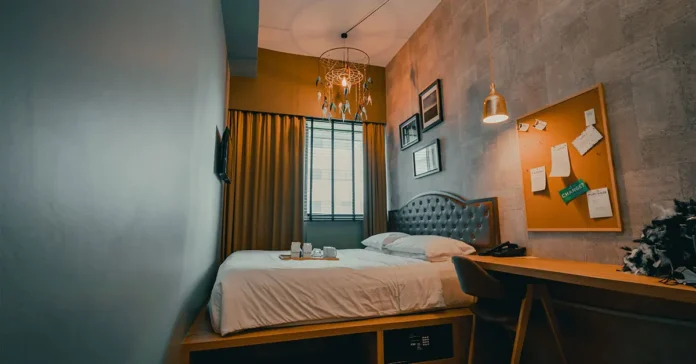Advantages of A Small House – As housing costs continue individuals are increasingly turning to small houses as a practical solution. In recent years, there has been a noticeable surge in the popularity of small houses, driven by a growing desire for the cost-effective living. Usually, the small houses are ranging from a few hundreds to around 1000 square feet area. Moreover, the increasing emphasis on cost effective living has grown the small house movement, with many recognizing the financial benefits of downsizing and simplifying their living spaces.
Here are a few reasons why moving into a smaller home will not only make you happier but also helps you save on your resources.
Economic Advantages of A Small House
Choosing a small home is like stepping into a world of smart and cost effective living.
- The lower initial cost of a small home is friendlier on the wallet compared to bigger ones, making it easier to own a home without breaking the bank. And the good news doesn’t stop there – maintenance cost of a small house is less over time.
- When it comes to energy, small homes are like superheroes, helping you save on those monthly utility bills. They’re not just good for your wallet; they’re good for the planet too.
Small homes are all about living sustainably, making choices that are kind to the environment and your budget. So, if you’re into saving money, living simply, and being eco-friendly, downsizing home might just be your perfect match.
Environmental Benefits of A Small House
Embracing a small home comes with notable environmental benefits that contribute to a sustainable lifestyle.
- Reduced Carbon Footprint – The use of fine construction materials in small homes is evident, minimizing the ecological impact linked to resource extraction and production. This not only upholds environmental responsibility but also aligns with sustainability, as a reduction in material usage results in lower construction costs.
- Conservation of Resources – The efficient use of space not only preserves natural landscapes but also offers a cost-effective approach to housing, requiring less land acquisition. Furthermore, the reduced waste production associated with smaller homes contributes to the resource management.
Advantages of A Small House – Get Simplified Lifestyle
Living in a small home offers a simplified lifestyle with the number of advantages.
- Easy to Maintain – Less surface area is easy to maintain which allows residents to spend less time and money on the same.
- Minimalistic Approach – The compact nature of small homes fosters a minimalistic living approach, promoting simplicity that not only reduces stress but also proves economically beneficial.
- Decluttering & Organization – Small home requires efficient space utilization, prompting residents to maximize every inch for practicality. This approach not only contributes to a more organized living space but also aligns with cost-effective principles.
Advantages of A Small House – Community Living
One of the great advantages of a small house living is getting an increased sense of community.
- Outdoor Living – The residents are encouraged to engage more with the outdoors, creating shared spaces to promote sense of togetherness.
- Close-knit Neighborhood – Residents experience enhanced social connections, forming the backbone of a cost-effective support system. Whether it’s lending a helping hand, sharing tools, or organizing collective events, these small home communities adds value to daily life without the need for extravagant expenses.
This sense of community living not only contributes to the affordability of living in a small home but also enriches the overall quality of life.
Flexibility & Mobility
The advantages of a small home extend beyond financial considerations, reaching into the realm of flexibility and mobility. Small houses offer an ease of relocation, which contributes significantly to a cost-effective lifestyle. This allows individuals the freedom to explore different locations without the burden of hefty moving expenses.
The interiors of these houses are easily customizable, providing a canvas for cost-effective flexibility that aligns with evolving preferences and requirements. Furthermore, the flexibility in space usage is a hallmark of small house living. This offers residents an ability to make quick adjustments to their living arrangements. This not only maximizes the utility of the limited space but also contributes to a cost-effective approach to housing.
Physchological Benefits of Small Homes
Living in a small home offers remarkable psychological benefits, contributing to a more balanced and cost-effective well-being. The cozy living environment in a compact space fosters a sense of security and comfort, promoting mental well-being without breaking the bank.
Additionally, the simplified daily routines with smaller living spaces contribute to stress management. With fewer rooms to maintain and organize, residents find themselves spending less time and resources on household chores, allowing for a more relaxed and fulfilling lifestyle.
Furthermore, small homes encourage a shift in priorities that positively impacts mental health. Emphasizing experiences over material possessions, individuals in smaller spaces find cost-effective fulfillment in shared moments and meaningful activities. The appreciation for essentials is heightened in a small home, as residents prioritize functionality over excess, cultivating a cost-effective lifestyle that enhances overall well-being.
Final Words
With reduced construction and maintenance costs, small houses offer financial prudence. The cozy environment fosters less stress, promoting overall well-being. Embracing simplicity, small houses prioritize experiences over possessions, reducing expenses. Choosing a cost-effective lifestyle doesn’t compromise fulfillment; it highlights the essentials. In a world valuing efficiency, small houses proves that living well can be simple, intentional, and economically sound, making them a wise choice for a satisfying life.
Curious to know more about the advantages of a small house? Read these frequently asked questions because now is time to try a smaller space, regardless of family size.
FAQs
A: Small houses are cost-effective due to their reduced construction costs, lower maintenance expenses, and energy-efficient designs.
A: The coziness and simplified living in small houses create a stress-free environment, minimizing the mental burden associated with larger spaces.
A: Yes, small houses often have a smaller carbon footprint, requiring fewer resources during construction and promoting sustainable living practices.
A: Yes, with thoughtful design and space utilization, small houses can provide comfortable living for families by prioritizing the shared spaces.
A: Yes, the compact nature of small houses results in reduced maintenance needs, saving both time and money on upkeep.
A: It encourages outdoor living and fosters close-knit neighborhoods, promoting community living and a supportive social atmosphere.
A: Depending on location and local regulations, there may be financial incentives, such as tax benefits or reduced utility costs, contributing to long-term savings.








